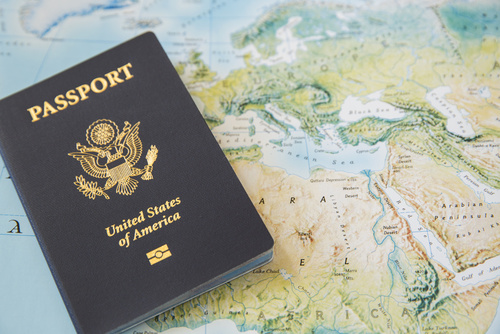
It is not uncommon for separated or divorced parents to share what is called joint legal custody.
Joint legal custody has nothing to do with where the children live or how much time they spend with each parent. It refers instead to the obligation of the parties to co-parent the children and cooperate with each other in major decision making, including issues of education, health care, religious upbringing and general welfare.
Courts favor this over sole custody which instead, empowers one parent to essentially make all of the child’s decisions without the need for input from the other. Sole custody is traditionally reserved for cases where there has been domestic violence or a history of interference by one parent which makes co-parenting impractical.
So where does a child’s passport come in? A New York State Appellate Court recently stripped a father of his joint custodial rights due to his refusal to cooperate in allowing his ex-wife secure a passport for their child.
In Snowden v. Snowden, the Appellate Division for the Second Department changed the parties divorce decree from joint legal custody to sole legal custody to the mother primarily because the father unreasonably withheld his consent to allow the mother to obtain a passport for the child so that she could travel to South America to visit her ill grandmother.
The key to this and most joint custodial issues is just that, “reasonableness.” Parents are expected to cooperate to further their child’s best interest and not to interfere with activities based on their personal animosity or agendas. Inasmuch as the request to travel was for good family reasons, to visit a dying grandmother, and not a trip to a location that was inherently dangerous, the court found the father’s refusal unreasonable.
The solution available to the Court therefore, was to strip the father of his joint custodial rights, grant sole custodial rights to the mother, and thus, enable her to obtain the child’s passport without the need for her father’s consent.
There is a lesson for both parents here. For the father in this case, put aside your differences and cooperate whenever reasonable and in your child’s best interest or risk losing custodial rights.
And for the mother in this case, if a parent is unreasonably interfering, consider seeking Court intervention to modify the terms of legal custody so that your child’s needs can be reasonably met.
Whichever side of the matter you may find yourself on, the advice of an experienced family and matrimonial law attorney is key.
Barbara J. King is the chair of Tully Rinckey PLLC’s Family and Matrimonial Practice Group. A partner-level attorney, Barbara represents clients in divorce, separation, equitable distribution, annulment, child support, child custody, spousal maintenance and adoption proceedings.







